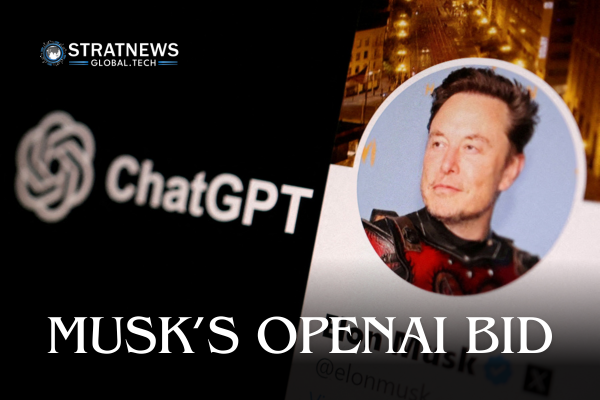Elon Musk Bids $97.4 Billion for Control of OpenAI, Escalating Feud with Sam Altman
A consortium led by Elon Musk bids $97.4 billion to acquire the nonprofit entity that controls OpenAI. The move intensifies Musk’s longstanding feud with OpenAI CEO Sam Altman and raises questions about the future of the artificial intelligence startup at the forefront of generative AI technology.
Musk’s Bid Stirs Conflict with OpenAI Leadership
Musk, who co-founded OpenAI with Altman in 2015 but left before its rapid growth, has been critical of the company’s transition from a nonprofit to a for-profit model. He claims this shift betrays its original mission of developing AI for the public good. In a statement on Monday, Musk said, “It’s time for OpenAI to return to the open-source, safety-focused force for good it once was. We will make sure that happens.”
Altman quickly dismissed the offer, posting on social media platform X, “No thank you, but we will buy Twitter for $9.74 billion if you want.” OpenAI’s board reportedly has no interest in Musk’s proposal.
Legal Disputes and High-Stakes Fundraising
Musk previously sued OpenAI in August last year, claiming that Altman and other leaders violated contractual agreements by prioritising profits over the public good. He also sought an injunction in November to block OpenAI’s conversion into a for-profit structure.
OpenAI argues that transitioning to a for-profit model is necessary to secure the funding required to develop the most advanced AI models. The company was valued at $157 billion in its last funding round and is currently in talks with SoftBank Group for a $40 billion funding round that would raise its valuation to $300 billion.
Musk’s consortium includes his AI startup xAI, Baron Capital Group, Emanuel Capital, and other investors. According to sources, xAI could merge with OpenAI if the bid is successful. xAI recently raised $6 billion at a valuation of $40 billion.
Financing the Bid
To complete the deal, Musk would need to raise substantial funds, potentially by selling or leveraging his stakes in Tesla or SpaceX. Analysts say the bid complicates OpenAI’s fundraising efforts and forces the board to consider the offer seriously.
Yale Law School professor Jonathan Macey noted that OpenAI’s board has a fiduciary responsibility to assess whether Musk’s offer is in the best interest of the nonprofit’s beneficiaries. Gil Luria, an analyst at D.A. Davidson, said, “This offer could significantly complicate OpenAI’s plans. The consortium backing Musk’s bid appears credible, and OpenAI’s board may not be able to ignore it.”
For now, the battle for control of OpenAI continues, with the stakes higher than ever in the race to dominate the future of artificial intelligence.
with inputs from Reuters





